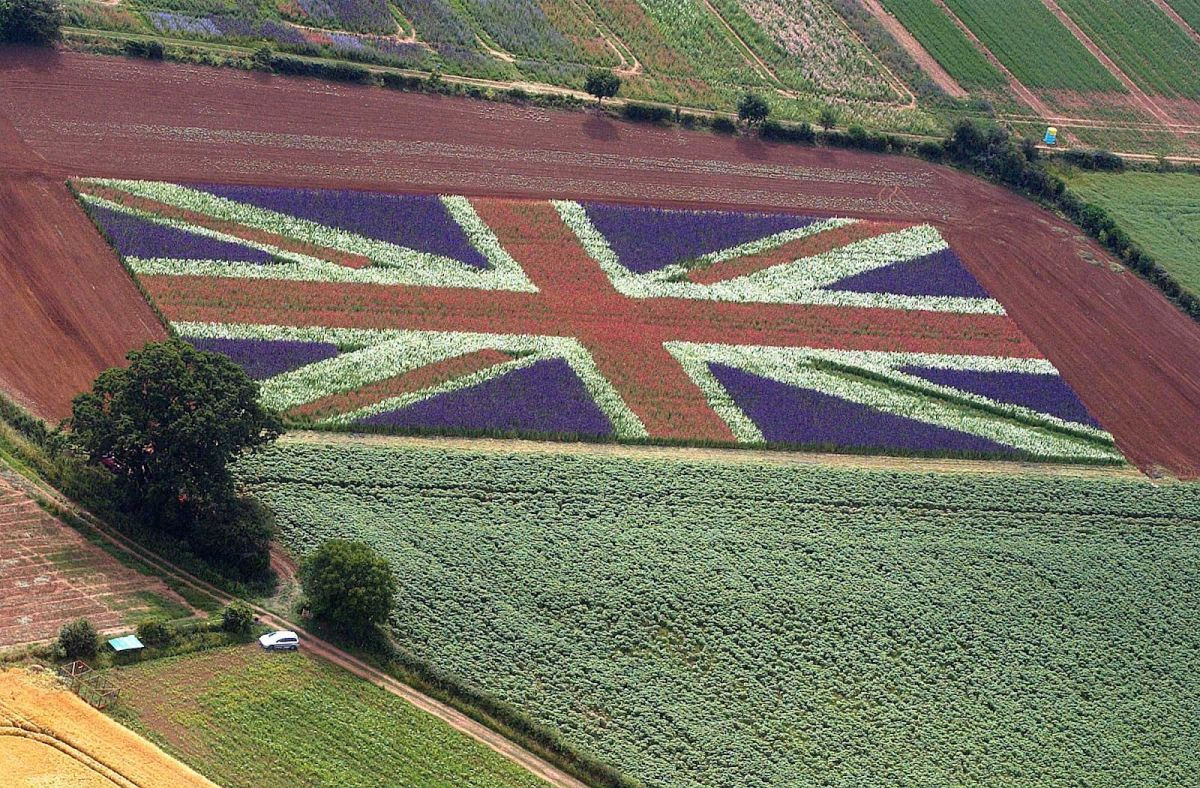British farmers have been warned by a Government-backed research body that farm profits may be slashed by more than half after Brexit.
 The Agriculture and Horticulture Development Board (AHDB), a statutory body funded by a levy on the farming industry, says the average farm profit of £38,000 a year could plunge to £15,000 depending on the outcome of delayed negotiations with Brussels about the UK’s future trading relationship with the remaining 27 EU nations.
The Agriculture and Horticulture Development Board (AHDB), a statutory body funded by a levy on the farming industry, says the average farm profit of £38,000 a year could plunge to £15,000 depending on the outcome of delayed negotiations with Brussels about the UK’s future trading relationship with the remaining 27 EU nations.
In a best-case scenario of maintaining most of the current trade rules and the British Government replacing the £3.1bn in subsidies now provided by the EU annual profits could rise to £41,000.
But the doomsday scenario of plunging profits was predicted if the British Government cut those subsidies and the UK’s future trade deals allowed foreign farmers tariff-free access to the British food market.
The AHDB analysis examined the impacts of more competition from cheaper good imports, lower subsidies and higher labour costs because of the Government’s promised post-Brexit restrictions on European immigration.
A spokeswoman for AHDB said there were an estimated 50,000-80,000 EU citizens working n UK farms, especially in horticulture.
The report forecast wildly different impacts on different types of farms, with dairy and pig farmers potentially receiving higher prices but cereal producers and sheep farmers being hit by new export barriers.
The Department for Environment, Food and Rural Affairs played down the forecasts, with a spokeswoman saying they were based on “highly unlikely scenarios that do not reflect the government’s negotiating position.”
Subsidy Doubts
 The Government has promised to maintain the current level of EU subsidies until 2022 but a major shake-up is expected after that date, with Environment Secretary Michael Gove refusing to guarantee the future level of support but telling the recent Tory Party conference that major changes were needed.
The Government has promised to maintain the current level of EU subsidies until 2022 but a major shake-up is expected after that date, with Environment Secretary Michael Gove refusing to guarantee the future level of support but telling the recent Tory Party conference that major changes were needed.
It was “plain wrong” and “socially unjust”, he said, that the subsidies now received by British farmers under the EU’s Common Agriculture Policy “channels hundreds of thousands of pounds of taxpayers’ money to the already wealthy, simply because of the amount of land they have”.
“Outside the CAP, we can stop subsidising the rich on the basis of how much land they own and instead spend money on enhancing the environment, supporting innovation, improving productivity, training a new generation of entrepreneurial young farmers and reviving rural communities.”
But farm leaders have two major fears about Gove’s proposal for replacing the CAP with a new subsidy system that concentrates on rewarding environmental protection. For one thing they fear that large, wealthy farms will be best placed to meet any new environmental rules because they will have the finances and skills needed to adjust their operations. The more fundamental concern is that the changes could be a smokescreen for cuts in farm subsidies deep enough to threaten the survival of thousands of farms.
Chancellor Philip Hammond has promised to maintain the current level of farm subsidies but only until 2022 and after that the farm lobby will be competing with hospitals, universities and dozens of other sectors hoping to protect their slice of the money they now receive via Brussels.
The Informa Agribusiness Intelligence estimated earlier this year that without subsidies 90% of British farms would collapse, and the National Farmers Union is worried about the priority the Government will place on farming when replacing EU funds and balancing farm exports against the interests of other sectors in post-Brexit trade talks. The agricultural industry directly contributed just £8.2bn in Gross Value Added to the UK economy in 2016, a fraction of the £124.2bn from financial services, leaving farmers feeling vulnerable in the horse-trading prompted by Brexit.
Beef farmers in Northern Ireland last week became the first industry sector in the UK to say they felt so endangered that they want to see a Brexit transition period last five years instead of the two years proposed by Prime Minister Theresa May.
The region’s Livestock and Meat Commission said that two years would not be enough to offset the negative impact of Brexit, which it said could “devastate” the industry with “grave consequences for the wider Northern Irish economy”.
The commission argues if there is no transition period after Brexit and the UK has to rely on World Trade Organisation rules Northern Ireland’s £200m annual beef exports to Europe would plunge by 90%. The beef farmers also called on Westminster to permanently adopt EU rules over the processing and slaughtering of animals to allow smooth trade with the Republic of Ireland, which processes meat from Northern Ireland.
While the situation around the Irish border is unusually complex even London will feel the impact of Brexit on farming. While only 8.6% of the Greater London area is used for commercial farming, areas with large farmlands such as Bromley, Havering, Hillington, Enfield and Barnet could be hit by the labour shortages and cuts to subsidies and export access feared by farm leaders.
The Government’s decision not to seek access to the single market after a transition period of about two years from the Brexit date of March 30, 2019, means farm trade could be conducted on basic WTO rules, under which meat exports, for instance, could carry tariffs of up to 60%.
The post Brexit: Farm Profits Could be Halved appeared first on Felix Magazine.
No comments:
Post a Comment